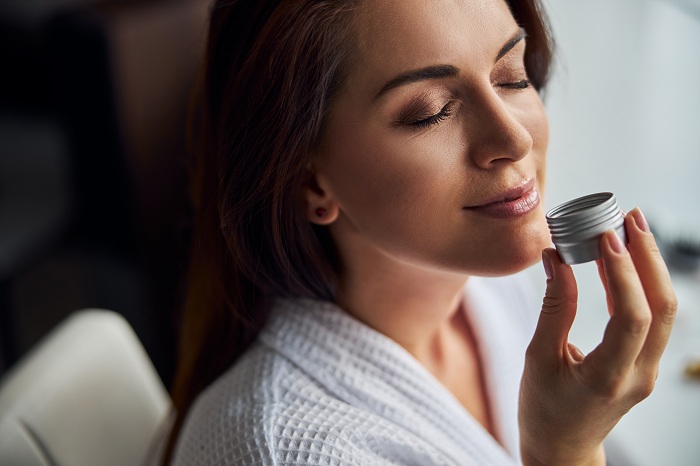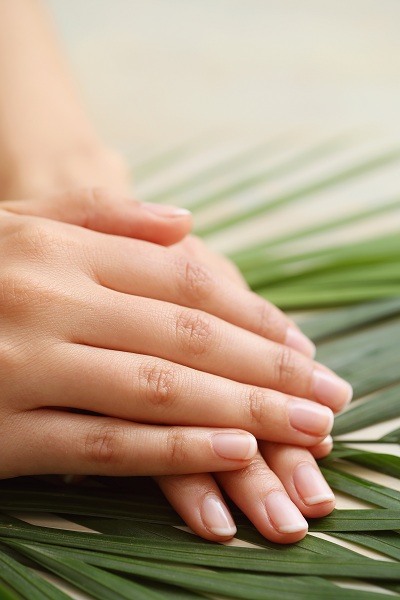Chances are that polysorbate 20 isn’t an ingredient that you’ve paid much attention to in the past. While it may seem pretty insignificant, this isn’t actually the case.
This ingredient, which you’ll probably find in several of the skincare products you already own, isn’t quite as safe as you would hope…

Contents
What is Polysorbate 20?
Polysorbate on its own is classed as a sorbitol. In other words, it’s a sugar alcohol that’s derived from certain fruits.
To produce polysorbate 20, it’s dehydrated to make a chemical called sorbitan.
This is then mixed with 20 parts ethylene oxide, along with lauric acid and other fatty acids.
Why Polysorbate 20 is Used in Skin Care Products
So, why is polysorbate 20 added to so many personal care products? These are the main reasons:
Surfactant Properties
One reason why cosmetic companies love polysorbate 20 is that it has surfactant properties. The term “surfactant” is short for surface-active agents. Surfactants de-grease and emulsify oil on the skin, making them useful substances to have in a facial cleanser or a body wash formula.
Emulsifies Formulas
As you know, oil and water don’t mix. Therefore, when the two are combined in skincare products, emulsifiers are needed to blend them together to prevent each liquid from separating.
Polysorbate 20 is an effective emulsifier that’s cheap to produce, making it a popular ingredient in products that contain both water and essential oils.
In addition to skin care, you’ll also find it used for its emulsifier properties in food products.
Has a Sweet Scent

Polysorbate 20 can be found in a number of sweet-smelling fruits, from apples to peaches to pears. As a result, it has a sweet and fruity fragrance.
However, although it may be strongly-scented, it isn’t technically a fragrance ingredient, which is why you’ll often find it in fragrance-free formulations.
What’s the Problem with Polysorbate 20?
Although the Cosmetic Ingredient Review (CIR) panel has deemed polysorbate 20 to be a safe ingredient to use on the skin, there are still safety concerns surrounding it.
Ethylene Oxide & 1,4-Dioxane Makes it Carcinogenic
One major polysorbate 20 concern is related to its production process. The ethylene oxide used to create the ingredient can easily be contaminated by a chemical called 1,4-dioxane, a potential human carcinogen [1].
That’s not the worst of it – according to the FDA, 1,4-dioxane can easily penetrate into the skin, exposing your deeper cells to this cancer-causing substance.
Causes Skin Allergies
Although polysorbate 20 is promoted as being safe for all skin types, many find that it triggers skin allergies. Scientific research hasn’t yet confirmed why this is, making it important to always perform a patch test when using cosmetics containing the substance for the first time.

Developmental and Reproductive Toxicity
If all of that wasn’t enough, experts also have concerns about polysorbate 20 leading to developmental and reproductive toxicity.
That said, only animal studies have been carried out so far, and these used high amounts of the ingredient, so it’s still not clear how this would correlate to humans.
How to Avoid Polysorbate 20 in Personal Care Products
It’s simple – take a look at the ingredients used in any product you’re considering purchasing. If you see polysorbate 20, opt for something else instead. However, keep in mind that it may also be referred to as sorbitan, polyoxyethylene 20 sorbitan monolaurate, sorbitan laurate, and Tween 20.

FAQs
Is polysorbate 20 safe to use?
Although polysorbate 20, along with its other forms, are deemed to be safe cosmetic ingredients, this is an ingredient that would still be worth avoiding in cosmetics.
Is polysorbate 20 a natural product?
Although the original sugar alcohol needed to make polysorbate 20 comes from fruits, polysorbate 20 itself is not a natural product due to the ethylene oxide involved in its production process.
Conclusion
There are a number of skincare ingredients out there that you need to be wary of, and, in our opinion, polysorbate 20 is one of them.
Yes, it may have its uses, especially if you’re a skincare brand looking to cut costs, but, from a consumer’s point of view, this isn’t an ingredient that you want to be applying to your skin.
References
[1] https://www.epa.gov/sites/production/files/2014-03/documents/ffrro_factsheet_contaminant_14-dioxane_january2014_final.pdf